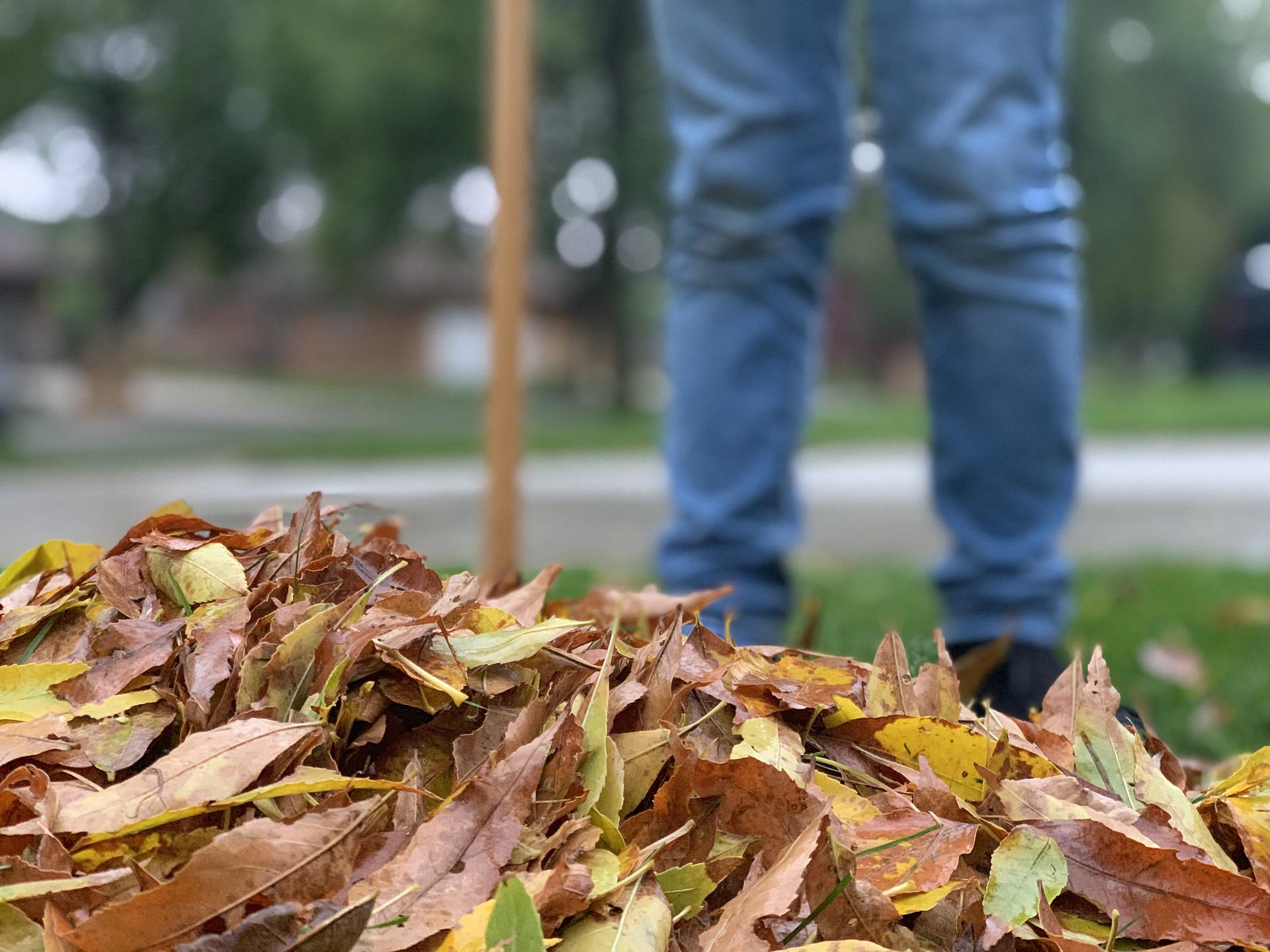Fall yard cleanup: 5 ways to help protect the river

Fall yard cleanup is an important annual chore, but not just for the tidiness of your lawn or vibrancy of your garden. It's an opportunity for everyday homeowners and property managers to help protect water quality by making a few simple, river-friendly choices.
Runoff and yard waste are two of the most prevalent urban sources of pollution in the Mississippi River here in the Twin Cities. When things like lawn care products, fallen leaves or pet waste end up down a storm drain, they get carried into nearby water bodies, bringing along chemicals, dangerous bacteria or excess nutrients that impact water quality. The result? E. coli warnings, beach closures, harmful algal blooms and damaged aquatic ecosystems.
When you go to grab your rake and gloves from the garage, keep in mind these five things you can do during fall yard cleanup to help protect the Mississippi River.
1. Gather (some) fallen leaves
Dead leaves are nutrient-dense, full of nitrogen and phosphorus. When they wash into streets and storm drains, those nutrients can enter our waters where they spur algae growth, reduce oxygen levels and harm aquatic habitat — including plants and wildlife.
To prevent this, make sure to rake up and dispose of large amounts of fallen leaves (keeping in mind local yard waste laws).
That said: You don't have to gather every single crispy brown leaf.
If the leaf pile is so voluminous it's making your yard look like nature's ball pit, collect what you can. However, if there's just a small scattering of leaves on the lawn, you can mulch or mow them and let the diced slivers decompose between blades of grass, acting as natural fertilizer.
Leaves in a natural area such as a garden bed that aren't at risk of being blown away can generally be left alone entirely. In fact, this type of leaf litter serves as important overwintering habitat for many insects and pollinators, so keeping some around can be beneficial.
2. Keep an eye on the pavement, storm drains
Spot some leaves or grass clippings on the sidewalk, or maybe piling up in the gutter? Sweep them away and pick them up! Better yet, you can adopt a storm drain or take part in our stenciling program as a way to remind neighbors about your storm drain's connection to the river.
This ensures they don't get washed into the storm drain and enter the river — helping to reduce pollution in the water, as described above.
3. Use lawn care products and fertilizer with care
Many groups suggest fertilizing your lawn in the fall to help encourage spring growth. If you want to do this, take a couple of precautions.
First, don't spread the fertilizer before expected rain. It takes a couple of days for grass to absorb the fertilizer, and any precipitation during that time will wash the fertilizer away and into nearby water bodies or storm drains. Mississippi Watershed Management Organization also suggests sweeping up any fertilizer that lands on a hard surface (such as a sidewalk or patio), and recommends using only zero-phosphorus products.
As for other lawn chemicals, certain pesticides and herbicides can be toxic to people and wildlife. Consider these alternative methods for weed control.
4. Add native plants to your yard
Native plants are a boon for wildlife, including pollinators and birds. Thanks to deep, absorbent roots that are in the ground year-round, many native plants can also help improve water quality — especially compared to turfgrass. (The National Environmental Education Foundation says a rain garden can absorb 30% more rainwater than an equal size area of lawn.)
And every little bit helps! Even converting a small patch of grass or non-native plants to low-maintenance perennials can help reduce nutrient pollution. We have some native plant suggestions here.
5. Keep using your rain barrel
Rain barrels are a great way to conserve water and divert precipitation away from storm drains. Keep using it until winter hits and it's at risk of freezing. At that point, empty the stored water into your garden (or use it to water thirsty trees, including on your boulevard) and store the barrel somewhere safe until the spring.
More ways to care for the Mississippi River
Whether urban, suburban or rural, our yards are part of the Mississippi watershed. The effects of how we landscape and route rain show up far beyond our property lines. Learn more about yard care and landscaping for the river.
Want to support habitat on a larger scale? Join us as a volunteer or a member to help us restore and steward special places throughout the metro.